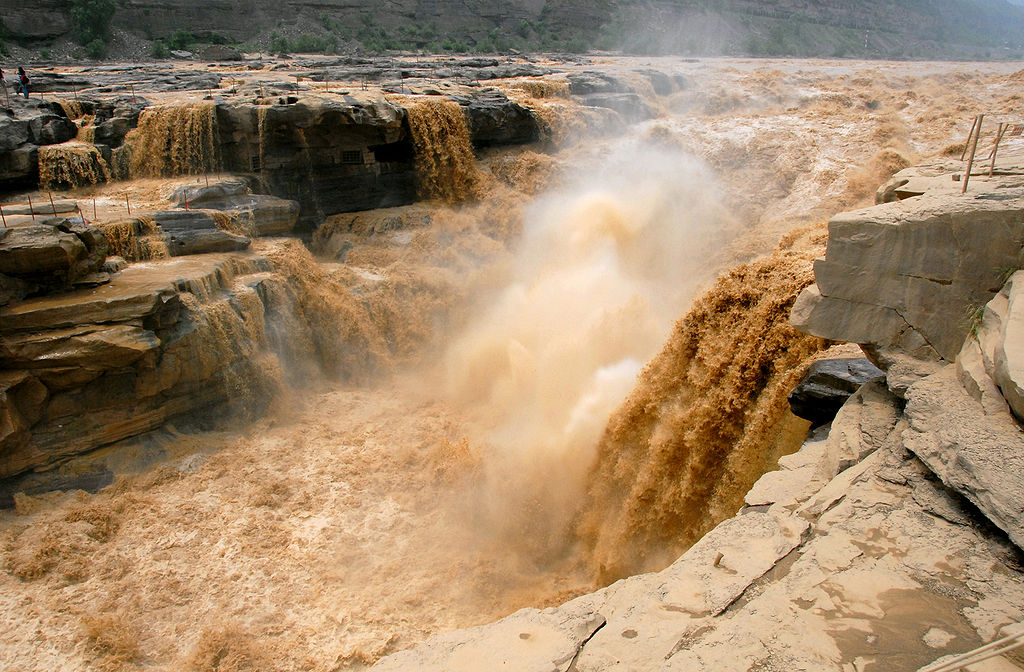CorporateNature Metaphor Series, No 97
Rivers erode mountains upstream and deposit the eroded grains of sand and silt downstream, fertilising the plains. Similarly, people accumulate grains of knowledge when younger and integrate and apply this knowledge when they get older, creating "rivers of knowledge".
What is the ideal amount of knowledge one needs - to go through life and leave a mark?
Let's start with the minimum amount: this would be a short and slow-running river that starts in the plains and simply doesn't erode anything or deposit anything.
What would be too much then? Possibly a long river like the Yellow River in China (Huang He) which erodes huge amounts of loess upstream and then floods the plains with alluvial silt - so much so that historically it often formed a viaduct of silt above the level of the plains and when, sooner or later, it would break these natural levees, it would flood the plains and drown hundreds of thousands. This type of river in the human world are some philosophers: people with extraordinary depth, yet unable to communicate with and be understood by the ordinary people around them.
The ideal "river of knowledge" is probably the Nile: a long river that accumulates silt and fertilises the desert. Unlike the dreaded floods of the Yellow River, the flooding of the Nile was welcomed and treasured by the ancient Egyptians - so much so that they built their calendar around this annual event.
 |
| The Yellow River at Hukou Falls (Source: Wikipedia) |
The flooding of the Nile is like Plato's birds: it comes when you need it.
ReplyDelete